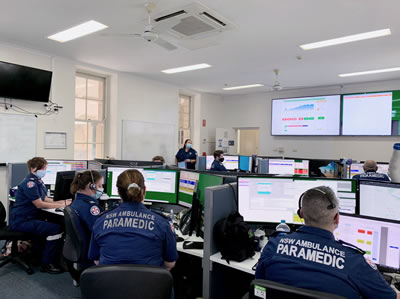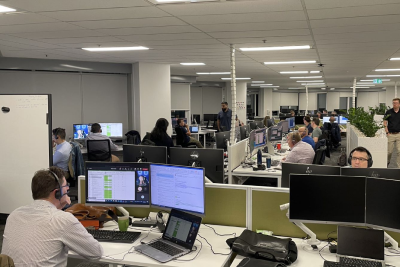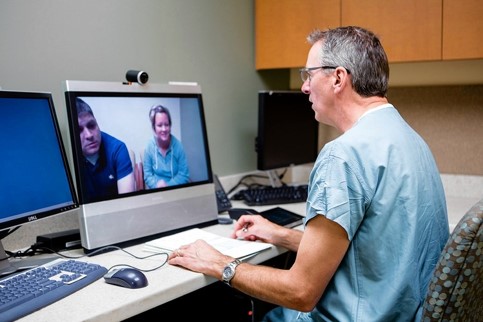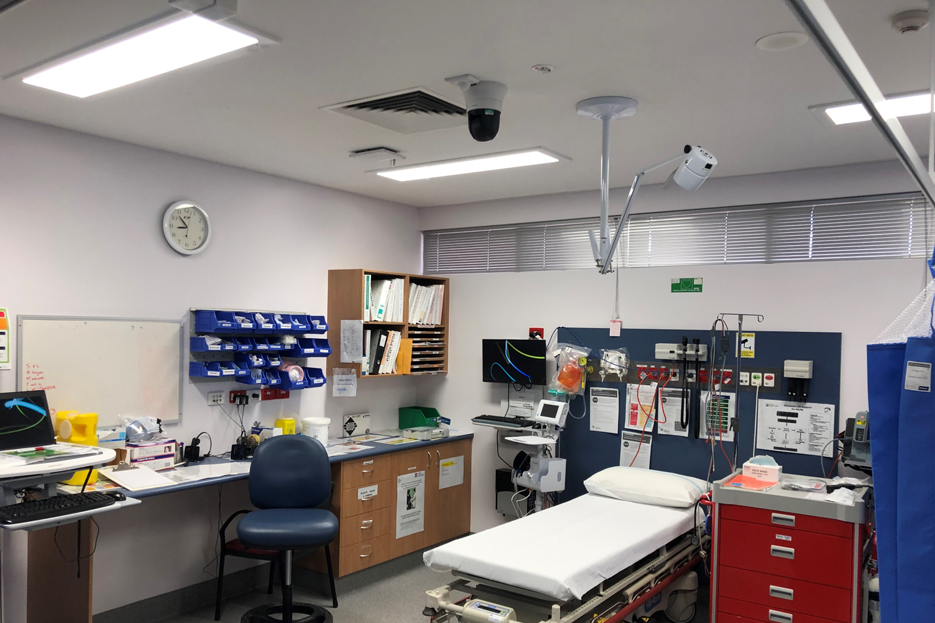In response to the COVID-19 Omicron variant of concern and in anticipation of a sharp rise in Triple Zero (000) calls, NSW Ambulance partnered with eHealth NSW to significantly expand the Virtual Clinical Care Centre (VCCC) at Gladesville. This was achieved in record time, helping NSW Ambulance to:
- increase the availability of Virtual Clinical Care Centre clinicians to manage higher triple zero (000) call volumes; and
- provide more comprehensive public call-backs to ensure patient safety and improve caller’s experience of care while waiting for an ambulance to arrive.
“Triple Zero received 5,100 calls yesterday,” said Dr Jason Bendall, Director Medical Services, NSW Ambulance. “The VCCC is playing an enormously vital role in managing demand and keeping patients safe. Being able to rapidly increase the number of clinicians able to undertake secondary triage and the ability to rapidly onboard clinical support assistants to undertake call-backs was a game changer as NSW Ambulance managed record high triple zero call volume, particularly from people who have just received positive COVID-19 tests”, said Dr Bendall.

How many calls does triple 000 normally get in a day?
- Pre-pandemic, in 2018, NSW Ambulance received an average of 3,300 calls per day.
- By mid-2021, this had risen to a new normal of around 3,700 calls per day.
- As at 16 January 2022, NSW Ambulance received over 4,000 calls per day peaking at over 5,100 calls on New Year's Day 2022.
Why was a new Virtual Clinical Call Centre (VCCC) the solution?
NSW Ambulance Control Centres are where NSW Ambulance Control staff receive and triage triple zero (000) calls and prioritise dispatch of ambulances. Where callers require immediate assistance, they assign the closest appropriate ambulance vehicle using GPS tracking technology and transmit details of the call to a mobile data terminal located within the ambulance.
Where an ambulance is not required immediately, experienced VCCC clinicians perform secondary triage to better understand the needs of the patient. Many patients do not require an ambulance to attend and can be managed safely at home. Others are referred to their GP, Pharmacy or other health care services. For patients waiting for an ambulance to arrive the VCCC provides an essential call back service to ensure patient safety. Essentially the VCCC service enables NSW Ambulance Control Centre staff to focus on answering and managing the increased volume of triple zero calls and prioritising emergency cases.
To expand capacity, the number of work consoles provided by eHealth NSW to the new VCCC at Gladesville was increased to 34, up from 16 at the Rozelle site. This rapid transformation required eHealth and NSW Ambulance staff to work around the clock over the Christmas and New Year period.
What’s involved in building a VCCC from scratch?
Kieron McGarry, Director, eHealth NSW Technical and Customer Support Services said: “A VCCC like this could normally take some months to plan, build, test and implement. Thanks to our dedicated teams going above and beyond and working very closely with our IT colleagues at NSW Ambulance, it was delivered within 10 working days.
“Additional new workstations were required as well as a telephony solution to facilitate outbound calling. The desktops for inbound calls to the Ambulance Control Centre also required a very specialised configuration with multiple large format screens. Pulling this equipment together at the last minute was definitely one of the key challenges, due to the ICT shortages that the COVID pandemic had brought about,” said Phillip Blom, eHealth Assistant Manager Frontline Applications.
Dr Bendall said: “Thank you to the eHealth NSW and NSW Ambulance Teams who had their Christmas plans disrupted to establish the VCCC to manage calls at a difficult time. Thank you for your sacrifice and dedication.”


